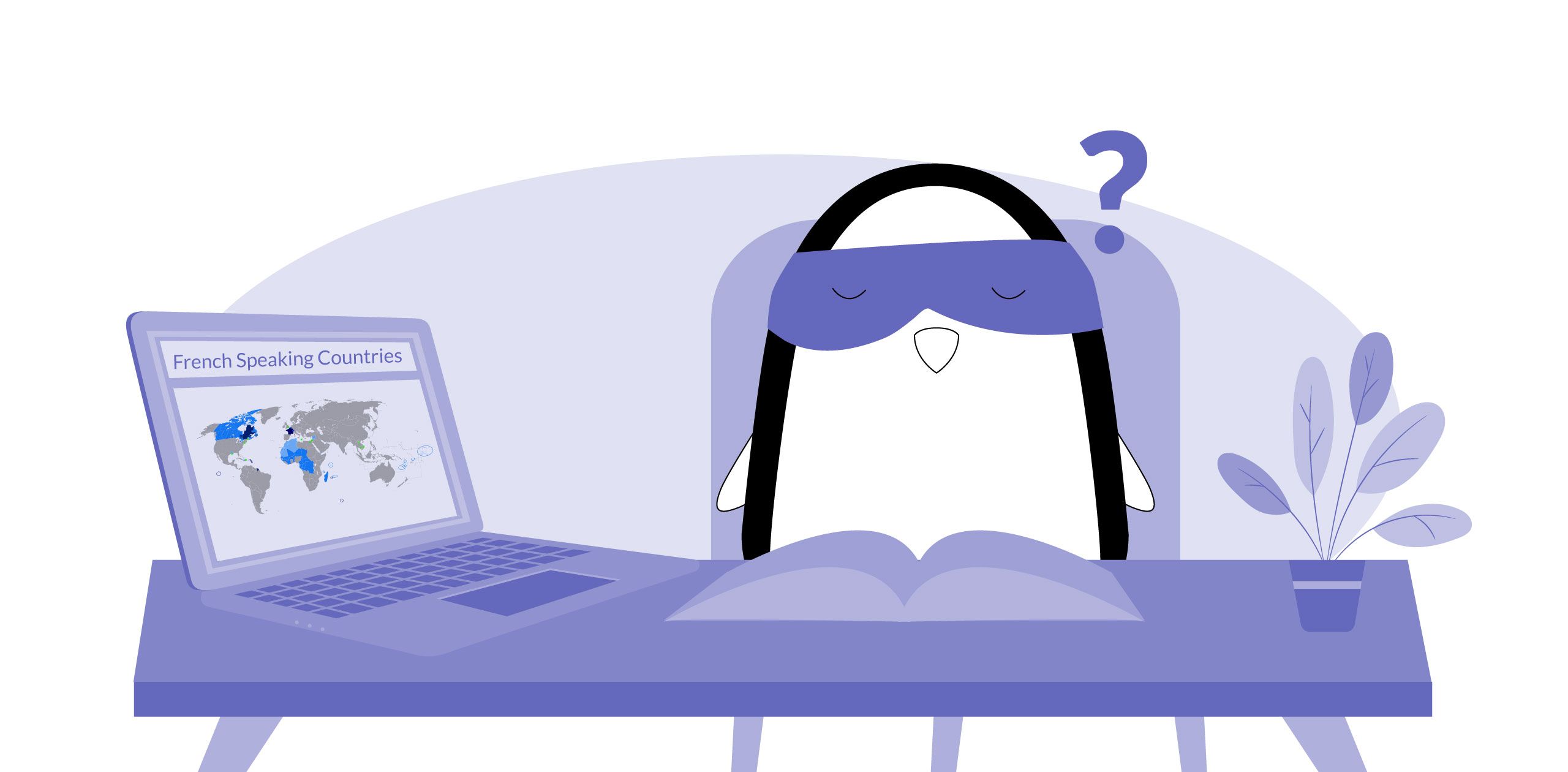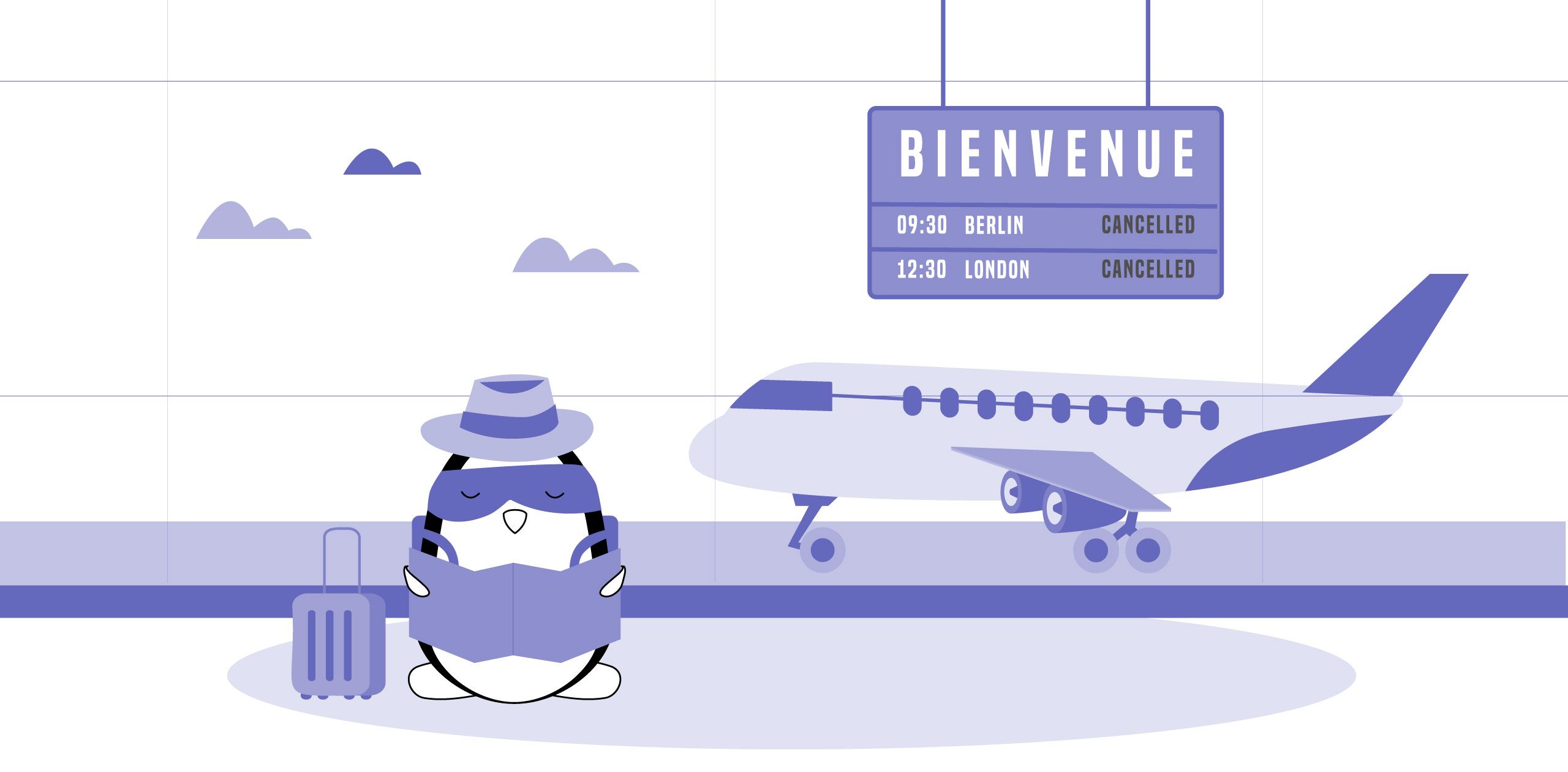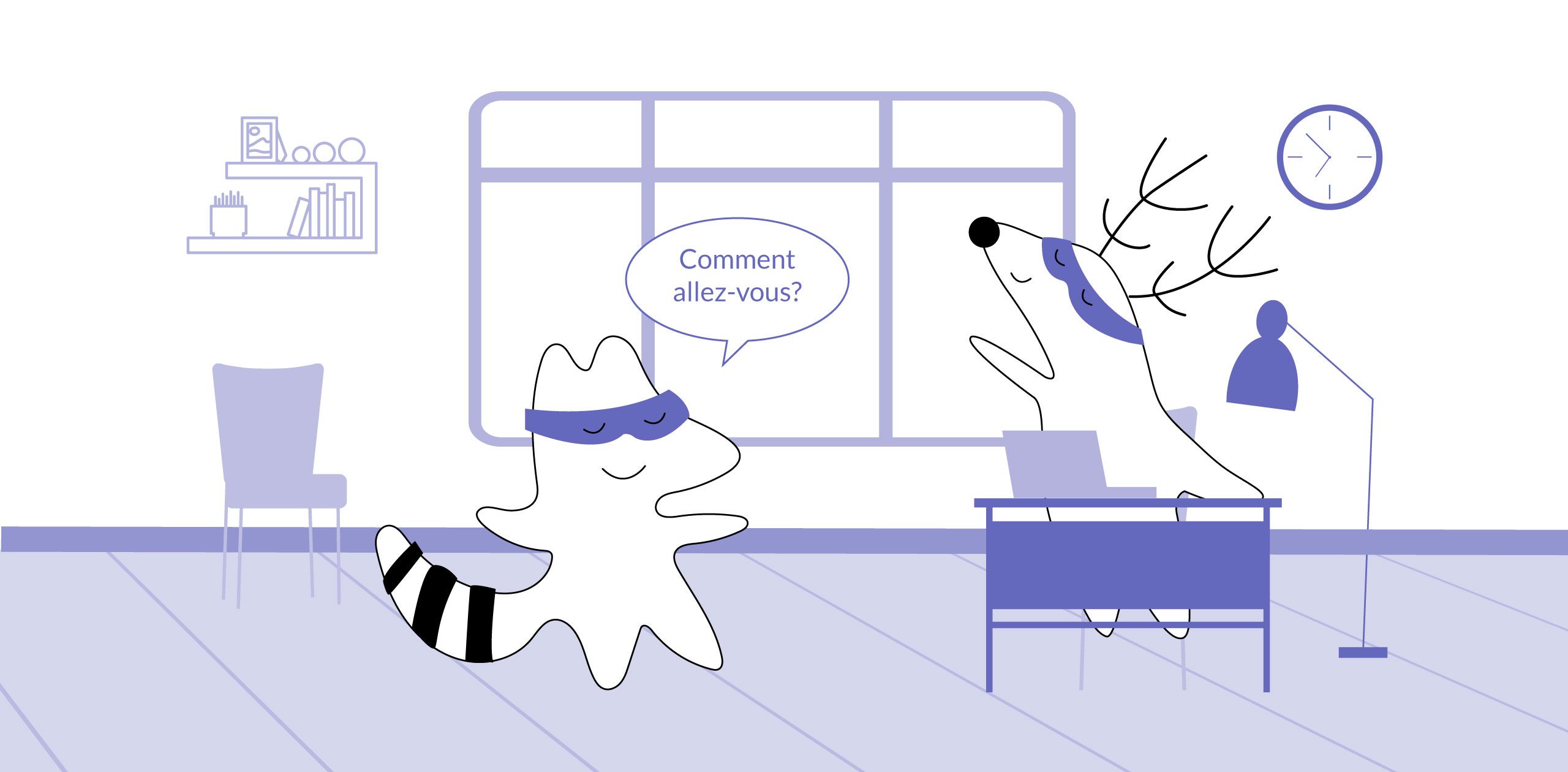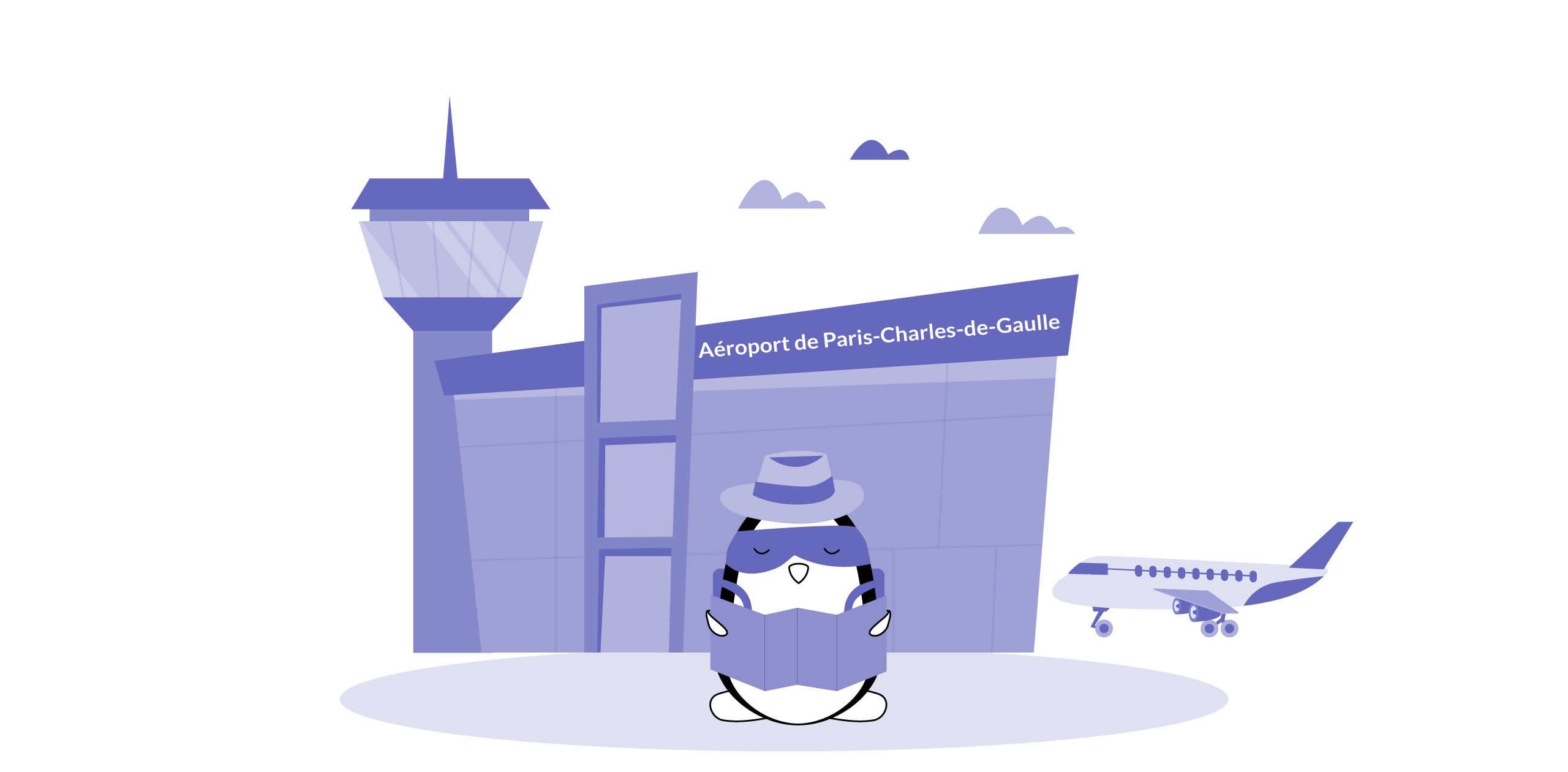
Learning French can take a lot of time, especially if you’re a complete beginner. Pronunciation rules, vocabulary, new grammar structures, articles, and many other things can really complicate your language learning journey. But what should you do if you want to speak French right now?
For example, what if you’re going to France in a week? Of course, many natives speak English and will probably understand you - but don’t you want to do something about your French?
Of course, you do. For example, you can learn some of the basic French words and most common French phrases - and ease your communication with French people as well as make your trip much more pleasant.
These words and phrases will also give you a head start for learning the French language in general, presenting you with the basic vocabulary and grammar.
So, are you ready to learn a little and prepare for your trip? Then check out our ultimate list of the basic words in French.
Learn French with Langster
Greet People in French
Greetings and goodbyes are among the basic French phrases that every beginning learner (and probably every traveler) needs to know. They allow you to make a good first impression when talking to French people - and show them that you care about France and its culture.
Earlier, we covered the topic of French greetings and goodbyes - to learn more, visit this post. To get familiar with some basic French words for “hello” and “goodbye” if you don’t know them yet, check out this list:
| Bonjour! | Hello!/Good morning! |
| Salut! | Hi! |
| Ça va? Ça va alors? | How it’s going? (informal) |
| Comment allez-vous? | How are you? (Formal) |
| Comment ça va? | How it’s going? (Formal, but not as much as the previous one) |
| Bonsoir | Good evening |
| Bonne nuit | Good night |
| Bonne journée | Have a good day |
| Au revoir | Goodbye |
| À plus! | See you later |
| À la prochaine! | Until next time! |
| Bonjour! | Hello!/Good morning! |
| Salut! | Hi! |
| Ça va? Ça va alors? | How it’s going? (informal) |
| Comment allez-vous? | How are you? (Formal) |
| Comment ça va? | How it’s going? (Formal, but not as much as the previous one) |
| Bonsoir | Good evening |
| Bonne nuit | Good night |
| Bonne journée | Have a good day |
| Au revoir | Goodbye |
| À plus! | See you later |
| À la prochaine! | Until next time! |
Of course, there are many other words and phrases that allow you to greet and part with people in French. However, these are the most common ones, and they should be enough for visiting France without knowing French at a good level.
Say “Thank You” and “You’re Welcome”
Saying “thank you” and “you’re welcome” is another skill that is very helpful when visiting France. For example, you will need to say it at the store, when checking into the hotel, when ordering food in the restaurant, and in a whole bunch of other situations when communicating with native French speakers.
If you want to learn more on the topic, check out this article on our blog. However, if you want to know just the basics - here you have them:
| Excusez-moi | Excuse me? |
| Merci/Merci beaucoup | Thank You / Thank you very much |
| Très bien, merci | Very good, thanks |
| Je vous en prie | You’re welcome |
| De rien | You’re welcome (more casual) |
| Pas de problème | No problem |
| Mon plaisir | My pleasure |
| Pardon? | Pardon? |
| S’il vous plaît | Please |
| Excusez-moi | Excuse me? |
| Merci/Merci beaucoup | Thank You / Thank you very much |
| Très bien, merci | Very good, thanks |
| Je vous en prie | You’re welcome |
| De rien | You’re welcome (more casual) |
| Pas de problème | No problem |
| Mon plaisir | My pleasure |
| Pardon? | Pardon? |
| S’il vous plaît | Please |
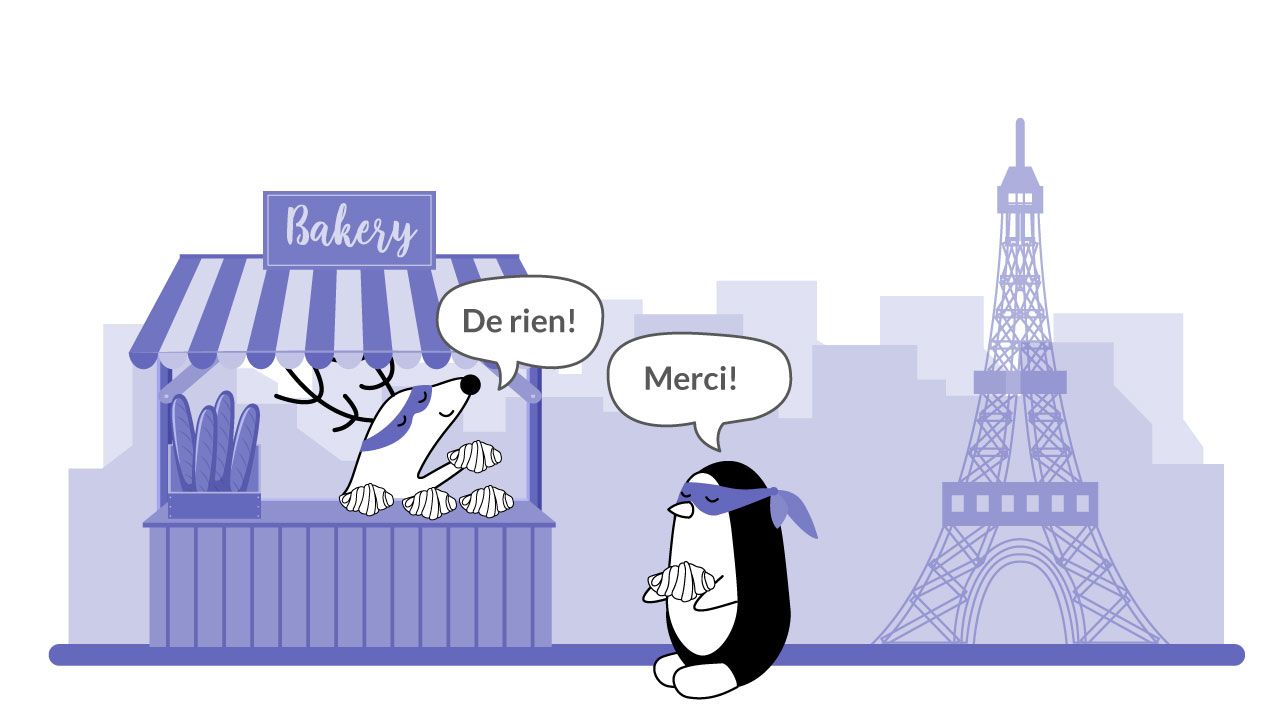
When You Don’t Know French at All
Of course, not everyone will be able to learn even the basic French phrases - and that’s okay. Many French people know English, and you can easily find someone who will be willing to help you if you’re lost. You just need to know how to ask them for help.
If you don’t know any French at all and it’s not possible for you to learn other French words or common French phrases on our list, all you need to do is memorize these expressions. They will help you ask for help and show that you don’t speak French.
| Je ne comprends pas | I don’t understand |
| Parlez-vous anglais ? | Do you speak English? |
| Un peu | A little |
| Je parle un peu français | I speak a little French |
| Je suis désolé(e), je ne parle pas français | Sorry, I don’t speak French |
| Pouvez-vous m’aider, s’il vous plaît ? | Can you help me, please? |
| Est-ce que vous pouvez m’aider? | Can you help me? (More formal) |
| Je ne comprends pas | I don’t understand |
| Parlez-vous anglais ? | Do you speak English? |
| Un peu | A little |
| Je parle un peu français | I speak a little French |
| Je suis désolé(e), je ne parle pas français | Sorry, I don’t speak French |
| Pouvez-vous m’aider, s’il vous plaît ? | Can you help me, please? |
| Est-ce que vous pouvez m’aider? | Can you help me? (More formal) |
While those phrases can be very helpful if you don’t know French or experience problems trying to say something in it, we still recommend you boost your language skills a little. After all, French people are notoriously famous for being critical towards English speakers - if you can speak their language even a little bit, use it.
Ask for Information
When you’re going on a trip - whether to France or anywhere else - you might need to ask for directions, recommendations (for example, for a good restaurant), or a wifi password.
Of course, Google could help you with all that - but very often, you might not have an internet connection. Moreover, sometimes it’s nicer to talk to real people than look at your phone.
| Combien ça coûte? | How much does it cost? |
| Quel est le mot de passe du wifi ? | What’s the wifi password? |
| Où y-a-t-il un bon restaurant aux alentours ? | Is there a good restaurant around here? |
| Où est le… / Où sont les _ ? | Where is/are sth? |
| Quelle heure est-il ? | What time is it? |
| À droite | On the right |
| À gauche | On the left |
| Tout droit | Straight ahead |
| À côté de | Next to |
| Près de | Near |
| Combien ça coûte? | How much does it cost? |
| Quel est le mot de passe du wifi ? | What’s the wifi password? |
| Où y-a-t-il un bon restaurant aux alentours ? | Is there a good restaurant around here? |
| Où est le… / Où sont les _ ? | Where is/are sth? |
| Quelle heure est-il ? | What time is it? |
| À droite | On the right |
| À gauche | On the left |
| Tout droit | Straight ahead |
| À côté de | Next to |
| Près de | Near |
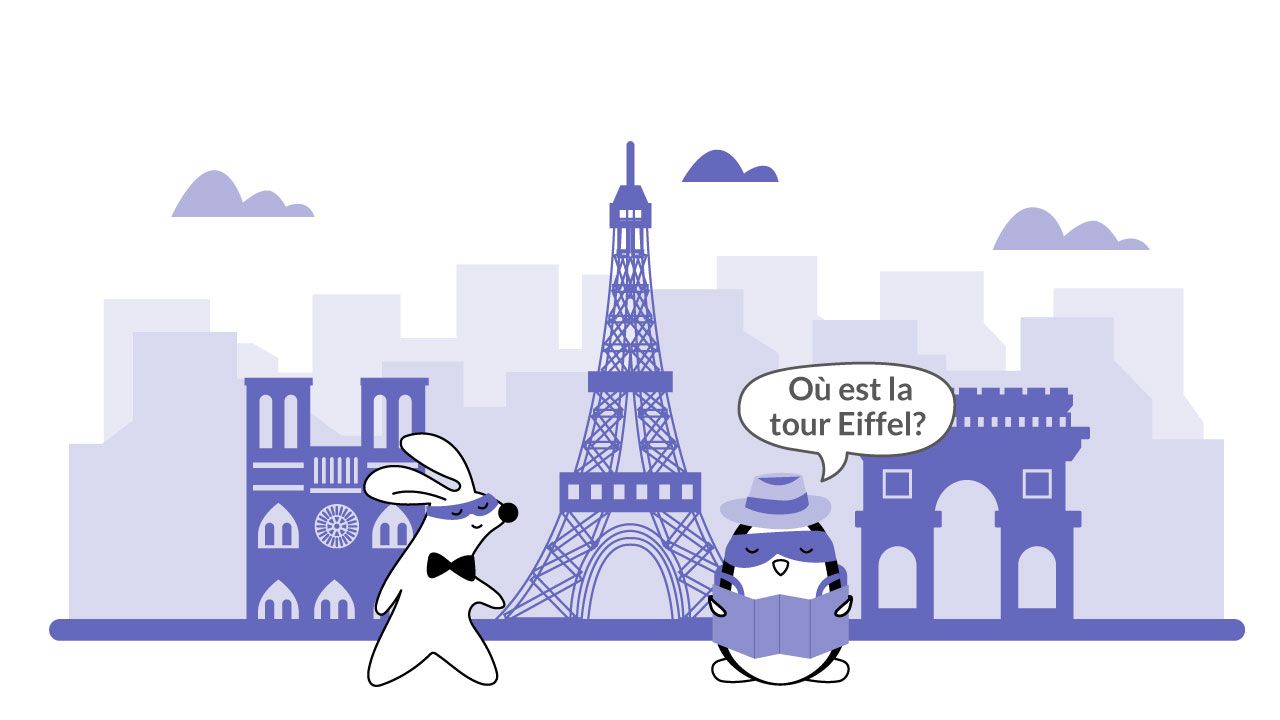
Make Small Talk
You might not talk to the sellers in the store or waiters in a restaurant too much, but what if you meet someone in your hotel or hostel you’d like to know better? Or what if you have a work trip to France and need to communicate with your French colleagues?
Even if your trip is really short, it still can do you a great service to meet some native French speakers and talk to them. This will definitely give you more confidence in your speaking skills - and help you learn some new French words and phrases.
These essential French expressions should help you with small talk:
| Je viens de… | I come from… |
| Je m’appelle… | My name is… |
| Parlez-vous français ? | Do you speak French? |
| J'ai _ ans | I am _ years old |
| Êtes-vous marié(e) ? | Are you married? |
| Qu'est-ce que vous aimez ? | What do you like? |
| Oui | Yes |
| Non | No |
| Je viens de… | I come from… |
| Je m’appelle… | My name is… |
| Parlez-vous français ? | Do you speak French? |
| J'ai _ ans | I am _ years old |
| Êtes-vous marié(e) ? | Are you married? |
| Qu'est-ce que vous aimez ? | What do you like? |
| Oui | Yes |
| Non | No |
Order Food
If you’re going to France, you can’t not eat in restaurants. Of course, to save money, you can buy food from the supermarket and cook it yourself. However, France is famous for its food - so if you go there, make sure to eat out.
And don’t worry - to successfully order food in a restaurant, you don’t need to know many French phrases or words. There are just a few of them, here:
| La carte, s’il vous plaît | The menu please |
| L’addition s’il vous plaît | The bill please |
| Sur place ou à emporter ? | To eat here or to take out? |
| Je voudrais… | I would like… |
| Un _ s’il vous plait | A (name of the dish) please |
| La carte, s’il vous plaît | The menu please |
| L’addition s’il vous plaît | The bill please |
| Sur place ou à emporter ? | To eat here or to take out? |
| Je voudrais… | I would like… |
| Un _ s’il vous plait | A (name of the dish) please |
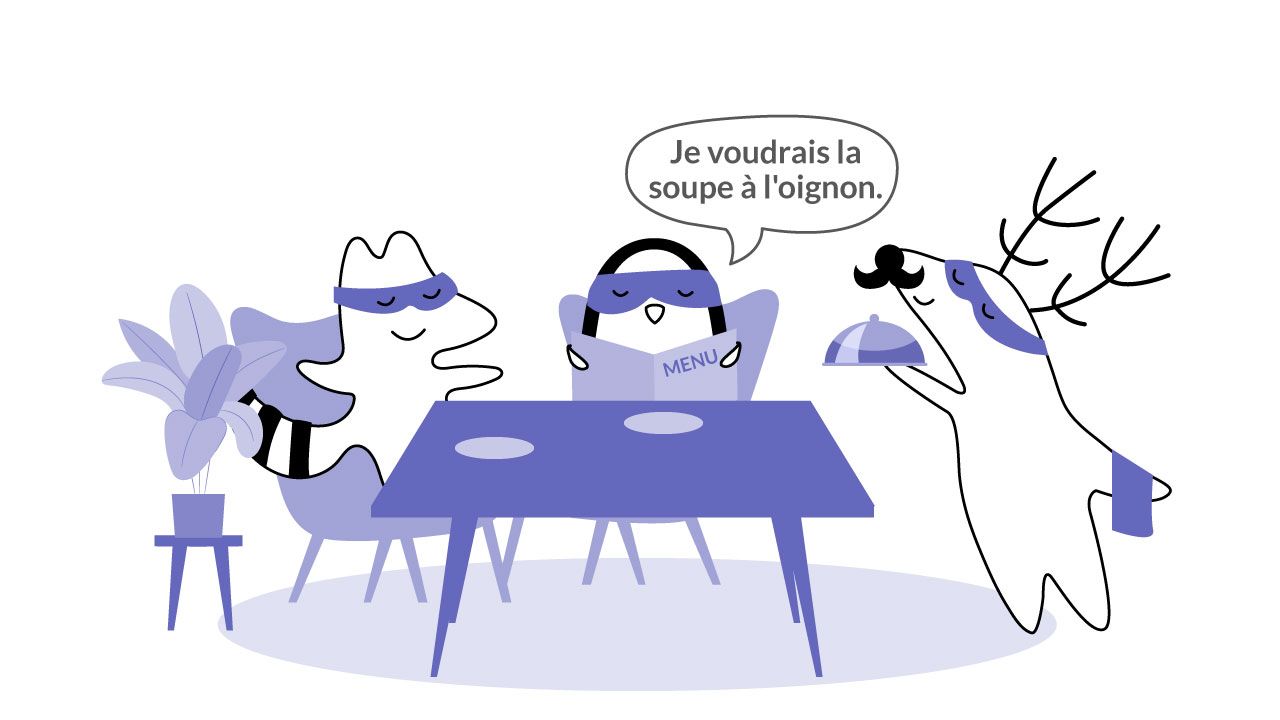
Navigate at Home
Of course, not everyone stays at a hotel when visiting France. Sometimes, to save money and see a different side of a French city or countryside, it’s nice to rent a room or get an Airbnb. In that case, French home vocabulary will come in handy.
And even if it doesn’t, who knows when you might need those common French words and phrases? Your new friends may invite you over, you may want to move to France, you might even learn those for your next French lesson. Either way, they might be helpful.
| la maison | the house |
| la salle | the room |
| la cuisine | the kitchen |
| la salle à manger | the dining room |
| le bureau | the office |
| le salon | the living room |
| la chambre | the bedroom |
| la salle de bain | the bathroom (without toilet) |
| les toilettes | bathroom/toilet |
| le sous-sol | the basement |
| le grenier | the attic |
| la porte | the door |
| la fenêtre | the window |
| le couloir | the hall |
| l’escalier | the stairs |
| le mur | the wall |
| le sol | the floor |
| le plafond | the ceiling |
| la maison | the house |
| la salle | the room |
| la cuisine | the kitchen |
| la salle à manger | the dining room |
| le bureau | the office |
| le salon | the living room |
| la chambre | the bedroom |
| la salle de bain | the bathroom (without toilet) |
| les toilettes | bathroom/toilet |
| le sous-sol | the basement |
| le grenier | the attic |
| la porte | the door |
| la fenêtre | the window |
| le couloir | the hall |
| l’escalier | the stairs |
| le mur | the wall |
| le sol | the floor |
| le plafond | the ceiling |
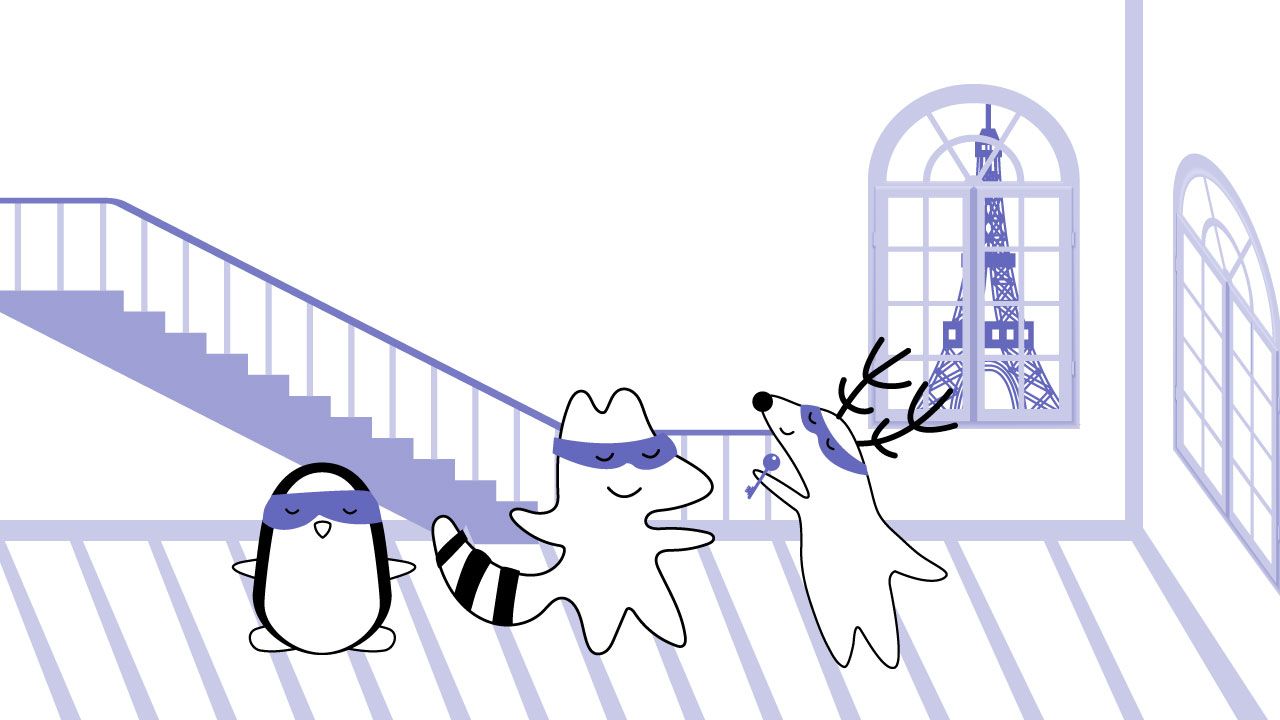
Master Relative Quantity
Moving on to the less essential but nonetheless practical vocabulary, let’s learn some basic French words for relative quantities.
While these can seem a little bit abstract, they will still be helpful when you would like to ask for directions, buy something at a store, or simply participate in a casual conversation.
| une chose | a thing |
| beaucoup | a lot |
| quelques | a few |
| quelque chose | something |
| un truc | a “thingy”/ “thingamajig” |
| rien | nothing |
| tout | everything |
| une chose | a thing |
| beaucoup | a lot |
| quelques | a few |
| quelque chose | something |
| un truc | a “thingy”/ “thingamajig” |
| rien | nothing |
| tout | everything |
Learn French Verbs
Basic French phrases and words are often not enough to understand what the other person is telling you, or even to express your own thoughts. Learning some common French verbs might be a good move - at least it will allow you to comprehend French better and create more fluent sentences.
Write these down to memorize them quicker and more efficiently.
| aller | to go |
| avoir | to have |
| être | to be |
| faire | to do |
| dire | to say/to tell |
| mettre | to put |
| prendre | to take |
| venir | to come |
| falloir | to be necessary |
| savoir | to know |
| vouloir | to want |
| pouvoir | to be able to |
| aller | to go |
| avoir | to have |
| être | to be |
| faire | to do |
| dire | to say/to tell |
| mettre | to put |
| prendre | to take |
| venir | to come |
| falloir | to be necessary |
| savoir | to know |
| vouloir | to want |
| pouvoir | to be able to |
You will find information on verb conjugation among other grammar points on langster.org - visit them and find all the important rules you need to learn a language.
Final Thoughts
Learning French can be fun and really useful - however, it’s not that necessary to know all the rules and have the perfect French pronunciation to go to France. Instead, you can memorize the basic phrases you need - such as “Où est le Louvre ?” or “Quelle heure est-il ?” - and enjoy.
Of course, a French trip will be much more enjoyable if you already know some French basics - and that’s why we really recommend you to learn this language. Trust us: it doesn’t have to be challenging.
For example, you can download our app and learn French in a fun and simple way by reading stories, getting familiar with new vocabulary, and doing quizzes. What can be more fun?







